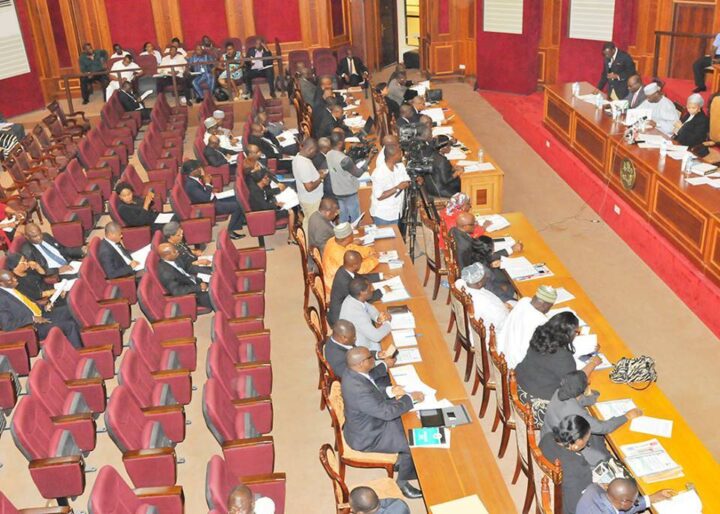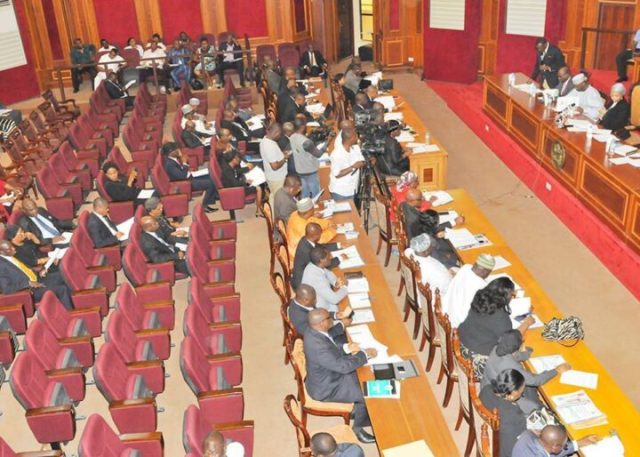
The much-anticipated polls to elect the president and new members of the national assembly are finally over.
Bola Tinubu, the standard bearer of the All Progressives Congress (APC), was declared the winner of the presidential election held on February 25.
Mahmood Yakubu, chairperson of the Independent National Electoral Commission (INEC), announced the results in the wee hours of Wednesday.
Tinubu secured 8,794,726 votes, Atiku Abubakar of the Peoples Democratic Party (PDP) had 6,984,520, and Peter Obi of the Labour Party (LP) polled 6,101,533.
Mixed reactions trailed the presidential poll, which several Nigerians described as irregular while others believe it was free and fair.
Opposition parties, particularly the PDP and LP, have expressed dissatisfaction with the electoral process, particularly the transmission of results.
The parties demanded that the presidential election be conducted afresh, saying it was “far from being fair or transparent”.
Datti Baba-Ahmed, the vice-presidential candidate of LP, claims his party won the election “but it was rigged”.
Like his running mate, Obi has also indicated that the LP would seek redress in court.
Similarly, Atiku said on Thursday that the election was marred by manipulations and should be challenged.
Given the stance of the opposition presidential candidates, it appears all roads lead to the judiciary.
But how does one navigate post-election disputes?
SETTING UP OF ELECTION TRIBUNALS
Unlike regular cases, election matters are handled by specialised courts – election petition tribunals
Section 288 of the constitution and the Electoral Act, 2022 are the laws that regulate election matters in Nigeria.
Section 130 (1) of the Electoral Act provides: “No election and return at an election under this Act shall be questioned in any manner other than by a petition complaining of an undue election or undue return (in this Act referred to as an “election petition”) presented to the competent tribunal or court in accordance with the provisions of the Constitution or of this Act, and in which the person elected or returned is joined as a party.”
It is a statutory responsibility of the court of appeal to set up the tribunals not later than 30 days before the elections as stated in Sec 130(3)(a) of the Electoral Act 2022.
The register of the tribunals is expected to be opened for business at least seven days ahead of the elections.
While there are separate petition tribunals for the national, state house of assemblies and governorship elections, the court of appeal serves as the court to hear presidential election disputes.
WHO CAN FILE A PETITION?
No matter how strongly a citizen feels about an election, being a concerned Nigerian is not sufficient ground to mount a legal challenge.
Only a candidate who participated in an election and or a political party can file a petition to challenge the outcome.
TIMEFRAME OF ELECTION PETITIONS
An election petition must be presented and filed within 21 days of the declaration of the result.
Once a petitioner fails to file his/her petition within 21 days, he/she loses the right of action and that petition would be deemed statute barred.
Also, an election petition must be heard and judgement delivered within 180 days from the date of the filing of the petition.
LEVELS OF APPEAL
A petitioner is allowed to explore an appeal if the judgment of the tribunal is not satisfactory.
However, it is pertinent to note that only a presidential election petition can get to the supreme court.
The court of appeal’s decision in cases involving national and state assemblies election petitions is final and cannot be further appealed.







